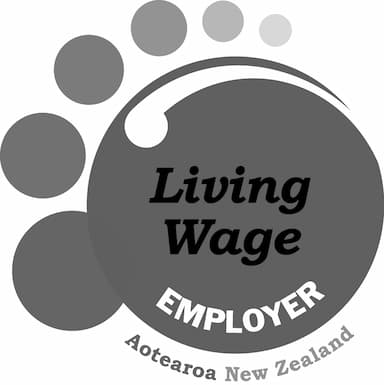Family Law
Less crime thriller more form filler

The stuff John Grisham never writes about.
Family law (as long as your ‘family’ isn’t Soprano or Corleone) is often just about dotting ‘i's’, crossing ‘t's’. You won’t find more fastidious dotters and crossers than Marks & Worth Lawyers.
1. What are your family affairs?
We don’t recommend you have an affair. But if you do, you may well need our services! Let’s say you need a lawyer for personal reasons – our team will help you secure your assets, plan for your future and offer calm, impartial advice. We offer a suite of services related to all aspects of Family Law to meet your family’s needs.
2. How Marks & Worth Lawyers can help.
Marks & Worth people are all experienced, compassionate, and capable of guiding you through family-related legal matters. Alongside meticulous attention to detail, we promise you and your loved ones discretion and empathy.
We can advise you on all aspects of relationship property law, which governs the property that must be divided between parties when a relationship ends. You can make agreements about the status, ownership, and division of property and assets.
Perhaps you’re getting closer to retirement. Some choose to relax and remember the good old days, while others embrace their inner skydiver. Whatever your retirement plans, we’ll help you navigate the crucial processes and legal needs of your golden age to protect your autonomy and wellbeing. We’ll structure a specialised plan and ensure your documents give you the chance to be you. Although the parachute check is your responsibility!
We believe family disputes are best resolved out of Court, privately, with mutual respect. As members of Collaborative Resolution NZ , we’re trained as Collaborative Resolution specialists and can help resolve your disputes using this innovative, effective process.
Talk to us if you need sound legal advice to:
- Administer an estate
- Buy a unit in a retirement village
- Apply for a Residential Care Subsidy
- Apply for a Reverse Equity Mortgage
- Protect vulnerable family members under the PPPR Act, or apply for PPPR Orders (Protection of Personal and Property Rights)
- Establish Enduring Power of Attorney (EPOA)
- Make or update a will
- Deal with your relationship property agreements
- Settle separation disputes
3. JustFund
A Smarter, Flexible Way to Fund Your Family Law Matter
We understand that when you’re navigating a separation or relationship property matter, the financial strain can sometimes stand in the way of getting the legal support you need. That’s why we’ve partnered with JustFund — New Zealand’s only dedicated provider of flexible funding solutions for family law legal fees. Through this partnership, eligible clients can access a flexible line of credit to cover legal fees and expenses related to separation or relationship property proceedings. You don't have to repay the loan until you reach a settlement, which we hope reduces the stress associated with paying costs upfront. Contact us for more information, or visit JustFund.co.nz
We're all facts and no fiction, so talk to us about your legal needs today.
Get In TouchFAQ
Think of this as a Community Chest of knowledge if you will
No, not at all! This process is not about picking your casket, unless you want to. It's about helping you get everything in order, so you can spend your retirement years doing what you love. Our team is here to ensure your well-being and assets are protected and your golden years are as stress-free as possible.
No. About three-quarters of New Zealand's retirement villages offer 'licences to occupy', also known as a 'right to occupy' or 'occupation licence'. This type of arrangement is very different from your usual home ownership.
An occupation licence is a personal right only. You do not own the property, but you have a contractual right to occupy that dwelling. Unlike normal property ownership, you are not able to mortgage the property, and you cannot rent the property.
An Occupation Right Agreement (ORA) is the name of the legal contact between the retirement village and a resident. The ORA sets out payment information, the village disputes process and termination rights. It is important that you work through your ORA with your lawyer and ensure you understand each part of the agreement prior to signing.
A reverse equity mortgage is a loan that has been designed for the needs of seniors. It allows people aged 60 and over to release cash from the value of their home to help fund their retirement. No regular repayments are required (but interest accrues and compounds on the debt) – the debt and intertest is repaid from the future sale of the property.
We know not everyone wants to talk about the dreaded ‘R’ word and everything that comes with it, but that’s all the more reason to chat with us. We can talk you through rest home care subsidies, advice for buying retirement village units, and what your wishes are so you can worry less about ageing and more about living.
Residential care includes the following types of long-term care provided in a rest home or hospital: rest home care, continuing care (hospital), dementia care and specialised hospital care (psychogeriatric care). Long-term residential care does not include independent living in a retirement village.
Yes, only rest homes or hospitals that have achieved Certification from the Government. The Residential Care Subsidy is paid directly to your rest home or hospital if you qualify for a residential-care subsidy. A private facility that does not hold a contract with the Government can charge privately.
To be eligible for government-subsidised residential care you must be aged 65 or over; or aged between 50 and 64, unmarried and with no dependent children. You must then be formally assessed as ‘needing care’. The assessment, called a ‘needs assessment’, must be carried out by a Needs Assessment and Services Coordination agency (NASC). Your GP can help arrange for an assessment to be carried out. If you are assessed as needing care, you will then be financially means assessed to see if you qualify for a subsidy.
The Ministry of Social Development (through Work and Income) carries out a financial means assessment that considers your assets and income, and any gifting that has occurred. If your assets are equal to or below the asset threshold, you will qualify for the subsidy to pay for most of the cost of your care. The income test then determines what you will have to contribute to the cost of your care from any income you receive.
Most people think of houses when it comes to relationship property, but there are several other assets this covers. These include content (but not taonga or heirlooms), land, vehicles, salary or wages, superannuation, gifts, inheritance, non-personal debts & more. We can walk you through the process of an agreement tailored to your property and partnership status.
Once you have been in a relationship for three years or more (less in some circumstances), the relationship property laws will apply to you. This may mean that all of your relationship property is divided equally (unless you have a Contracting Out Agreement in place).
A COA (formerly known as a pre-nuptial) is a written agreement between a couple which sets out their assets and how they want their property (including future property) to be divided in the event that they separate.
The Property (Relationships) Act contains a checklist of factors that the court considers when deciding if a relationship is “de facto”. The list is not exclusive and each relationship is considered individually.
A de facto relationship is a relationship between two people (either the same or different sex), who are at least 18 years old and who live together as a couple.
Factors that may indicate you are living together as a couple include:
You have been together for a long time.
You live in the same house together.
You have a sexual relationship.
You share your money.
You are committed to a shared life.
You have children together.
You share the household chores.
Not necessarily. If you live in the house together and have been together for three years or more (less in some circumstances), it is the family home and is classed as relationship property. The general rule is that relationship property will be divided 50/50 at the end of the relationship (if the relationship has lasted more than three years). It does not matter when the house was acquired or who owns it, if it is the family home and you have been together for more than three years, then in most cases it will be divided equally.
Not at all. You don’t, as Beyoncé would say, have to put a ring on it to talk about property division. Married, de facto or civil union partners can make and change property agreements at any time, even if there isn’t a dispute. We would recommend talking to your partner and us about the type of agreement that works best for you and your assets
Under the law, both parties to a relationship property agreement have to obtain independent legal advice before signing the agreement; both lawyers have to certify that they have given that advice. The Agreement must also be in writing, signed by both parties and witnessed by their independent lawyers. If you do not follow these rules your agreement will not be enforceable or legally valid.







